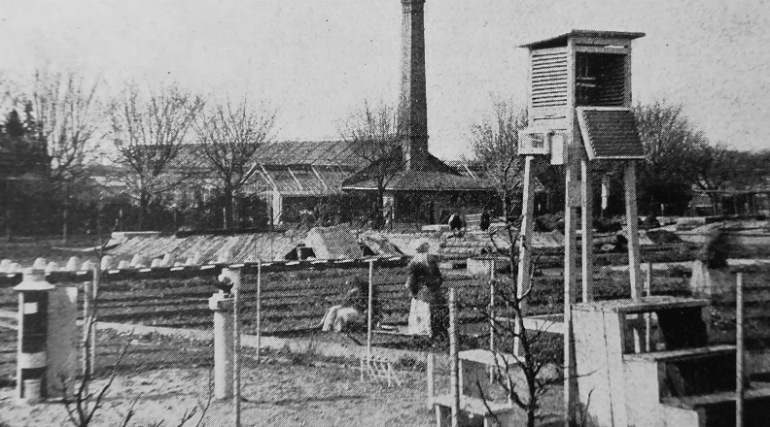Temperature record of 42⁰C still unbeaten

A special meeting, organised to mark the 100th anniversary of the record-breaking temperature recorded at the meteorological station of the Royal Pomological Institute in Prószków, will take place on 29 July 2021.
One hundred years ago, on 29 July 1921, exactly at 1.48 pm, the thermometer showed 40.2⁰ C at the station! It is an official, still unbeaten thermal record of Poland.
On the 100th anniversary of the historic reading, the authorities of the University of Opole, under the project "Construction of the International Centre of Research and Development for Agriculture and Agro-Food Industry", are organising a conference in Pomology in Prószków - the place of the record-breaking measurement from a century ago. It will be combined with the launch of a modern meteorological station, the measurements of which will continue the weather observations made in the area.
In the course of the meeting, a temperature reading will be taken - exactly 100 years after the historic measurement. The participants will also have the opportunity to listen to a lecture by a representative of the Association of Amateur Meteorologists of Silesian Lands.
Historical meteorological station in Prószków
The meteorological station in Prószków - Pomology was founded in 1887 by Gustav Stoll, then director of the Institute of Pomology. It served mainly to measure precipitation.
In 1916 it was transformed into a full meteorological station and assigned to the Meteorological Institute in Berlin, and then in 1934 to the Meteorological Service of the Third Reich in Berlin.
Measurements were taken three times a day at 6.48 a.m., 1.48 p.m. and 8.48 p.m. The readings included measurements of atmospheric pressure, air temperature, wind direction and strength, cloud cover and visibility, soil moisture, precipitation and insolation.
At the same hours, soil temperature was also measured at 0, 10, 20 and 50 cm depth, as well as relative air humidity.
All measurements, which were taken with 18 different devices, were recorded in a special book and at the end of the month, a monthly report was created and sent to the Meteorological Service of the Third Reich in Berlin.
The weather observations carried out in Prószków served as a basis for climate research, which was used in agriculture, forestry, water management, technology and medicine.
In the archival materials on the station one can read, among others:
All observations are also used to create weather forecasts, which are important for aviation, shipping and the economy. The data from the meteorological station is sent to various enterprises for which weather and climate are very important and have an impact on their development. Research conducted at the meteorological station has a great impact on the development of meteorology.
The results of the observations are sent daily to Wroclaw airport; they have an impact on the safety of flights. They are marked on special weather maps and the pilots are informed by radio about possible threats.
The creation of a meteorological station and all the findings of the daily observations are used in teaching classes. A special subject - meteorology - was created, where students and trainees have the opportunity to learn about weather conditions and how observations are made. By calculating the average daily, monthly and annual temperatures and observing different types of weather disturbances, a lot of interesting information about the weather conditions at the university campus can be obtained. All the knowledge gained from meteorological observations is used in practical classes."



